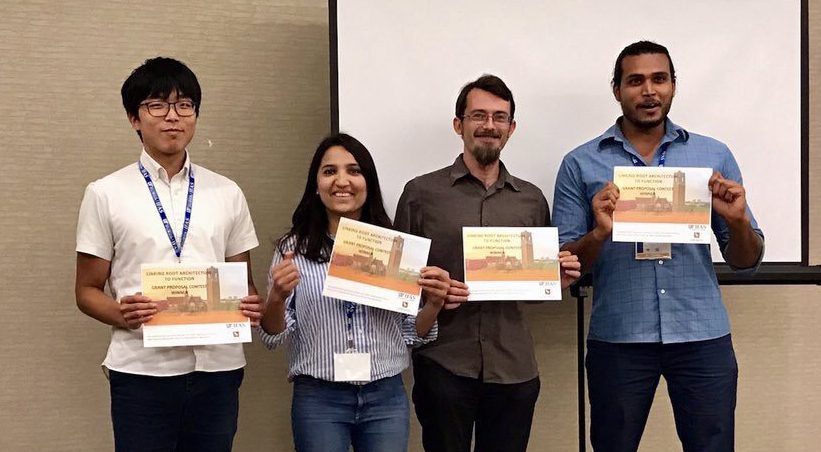CLEMSON — Climate change and soil degradation are presenting unprecedented challenges to food productivity by placing significant stress on crop roots. In response, plant scientists are researching and developing new theories on the role of roots in healthy crops in an attempt to meet the food demands of a world population that is expected to reach 10 billion by the year 2050.

This summer, Clemson University graduate student Enoch Noh attended a root workshop in Orlando where he learned groundbreaking laboratory techniques and theories about root architecture and function. He left with a wealth of new knowledge on root systems, as well as a first-place win in the workshop’s research proposal competition.
The five-day workshop was organized by the University of Florida’s Center for Stress Resilient Agriculture. It covered topics including crop adaptation to adverse conditions and technologies for sensing environmental stress. Attendees had access to the Citrus Research and Education Center of the University of Florida, where they observed its research and methods in action.
The workshop emphasized the importance of identifying the correct methods and equipment when conducting root studies. Noh thinks what he learned will be crucial to his future research as he pursues his Masters degree in plant and environmental sciences.
“The workshop really helped me to understand the ongoing questions that need to be answered in root science, and it also helped me to learn some techniques and equipment that I need for my research,” he said.
Noh’s first-place winning research proposal was called “Assessing Root Architecture’s Relationships with Rhizosphere Ecology in Maize and Bean.” His research project focused on soybean root system architecture which can improve water use efficiency in South Carolina soils.
Noh received a highly competitive travel scholarship which enabled him to attend the workshop. His mentor, Sruthi Narayanan, advocated for him in the scholarship application process and even contributed some of her own research funding to cover additional costs.
“Enoch is a highly focused, hard working graduate student,” said Sruthi Narayanan, Noh’s advisor and Clemson University plant scientist. “He is highly enthusiastic to complete his root research successfully and wants to pursue every opportunity to learn about methods for measuring root traits, analyzing data, and linking it with function.”
The significance of what Noh learned at the workshop is far-reaching, as it can aid in the future functioning of agricultural systems. Since the human population will continue to increase, along with global warming factors, plants are likely to encounter water, nutrient, and heat stressors.
“It is important to improve water use efficiency in agriculture to maximize the crop yield in the limited area of land surface, so that all the people can get enough nutrition to survive,” Noh said.
Get in touch and we will connect you with the author or another expert.
Or email us at news@clemson.edu

